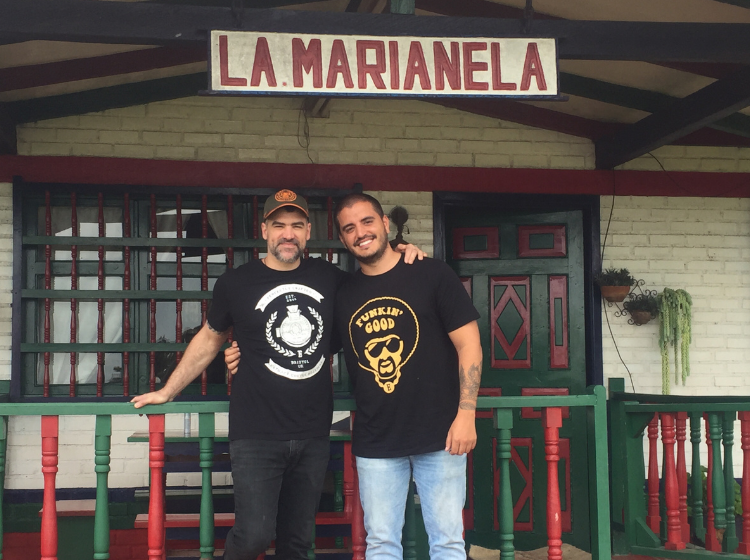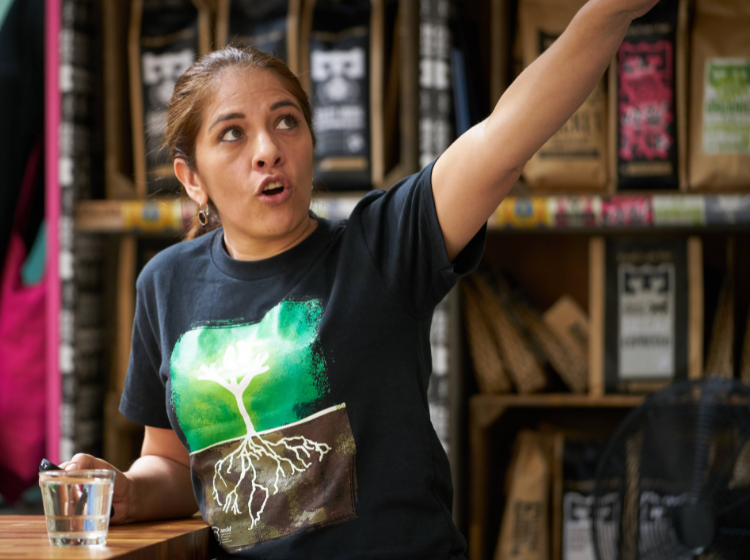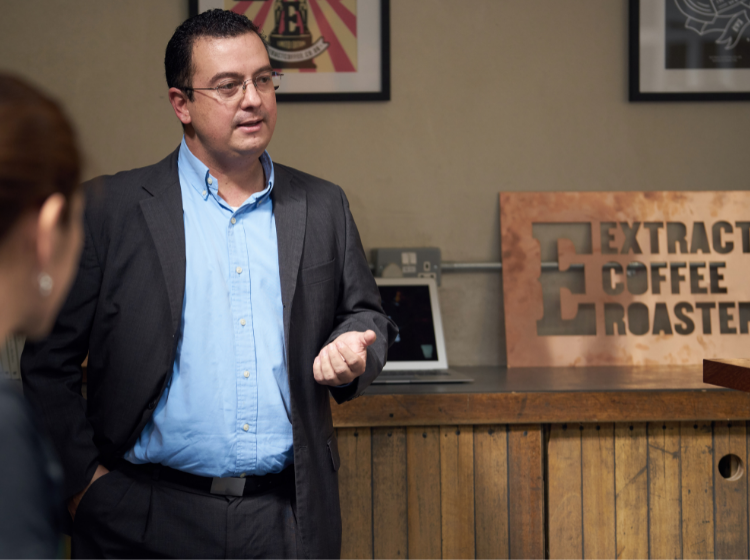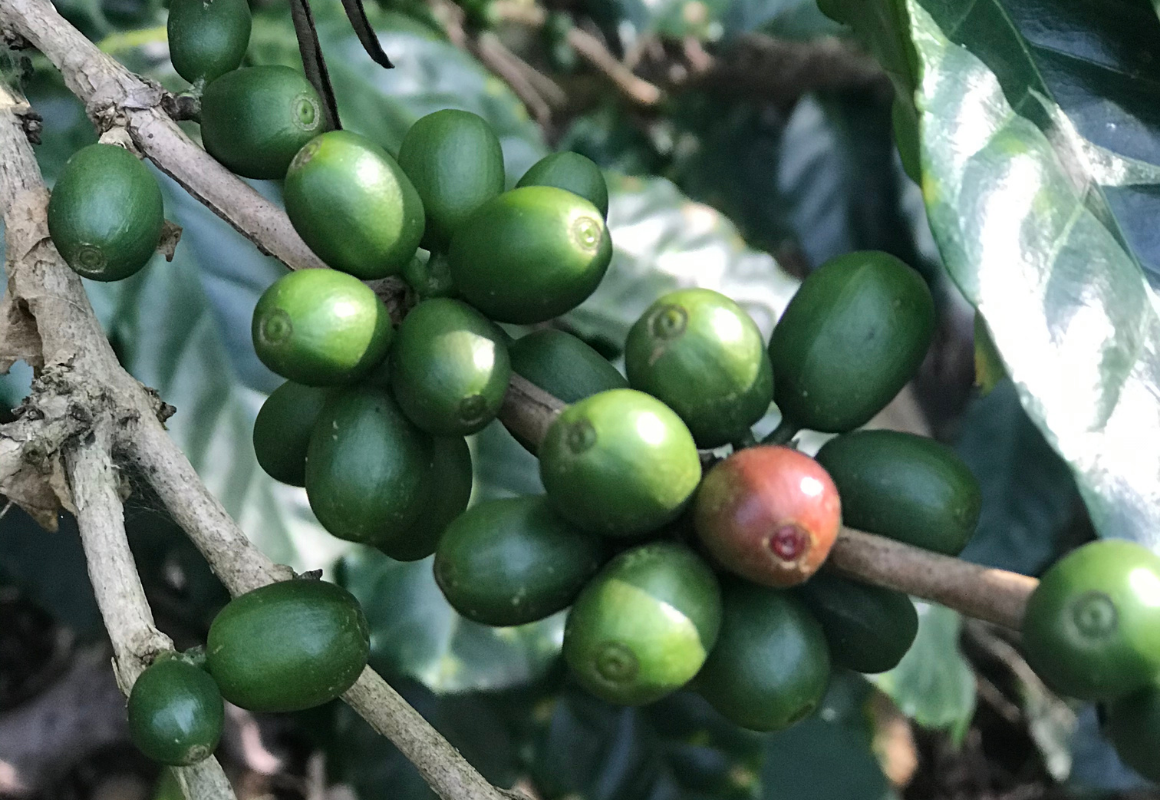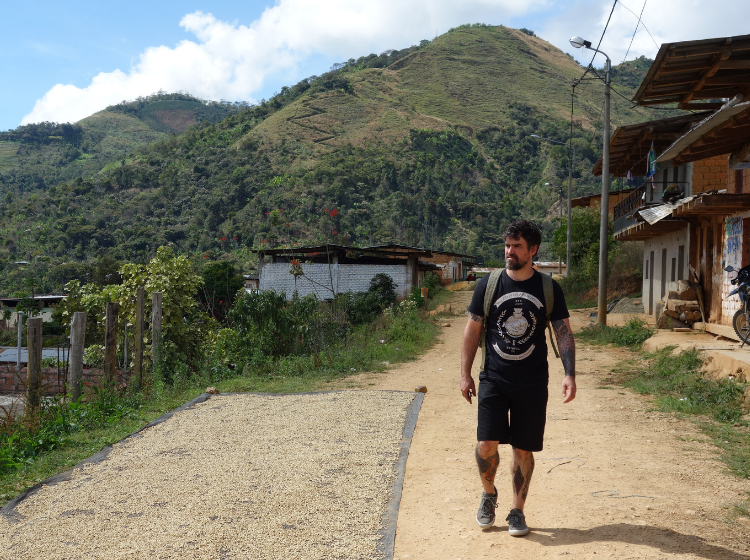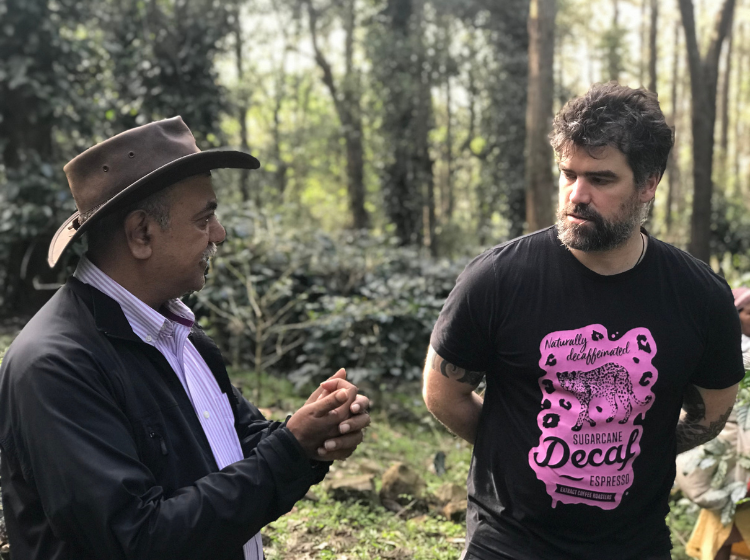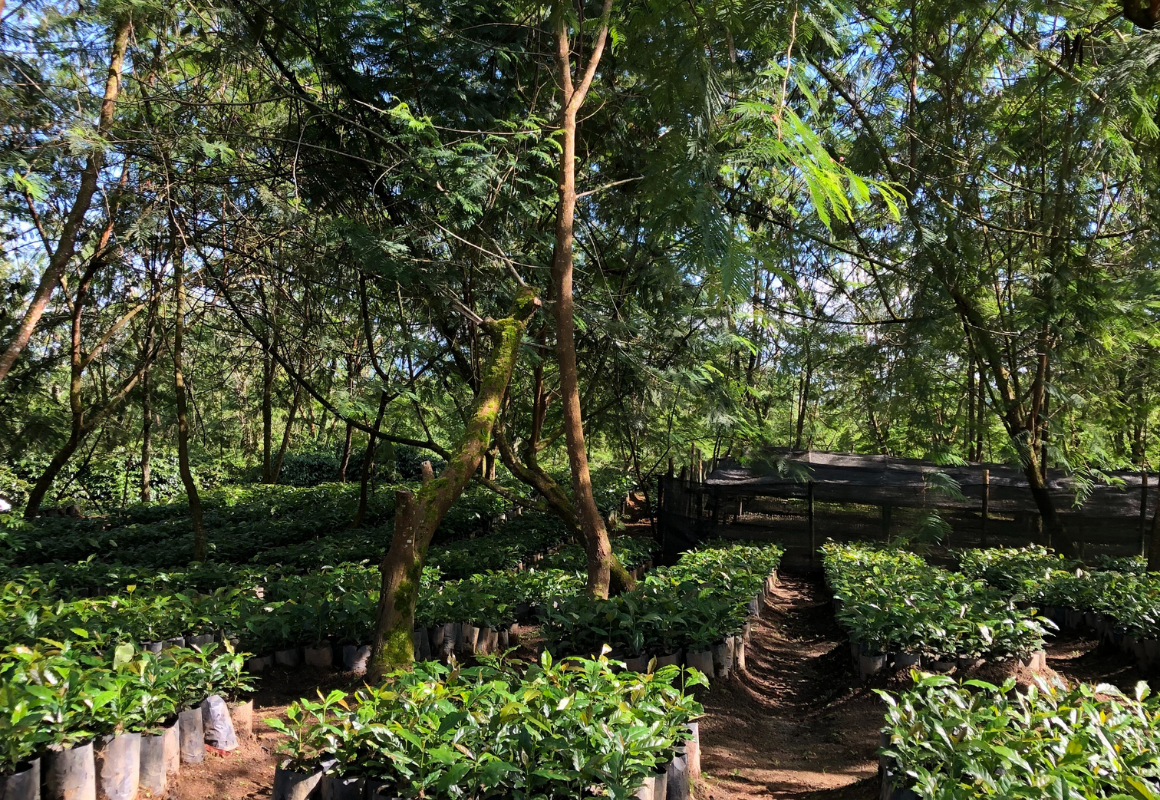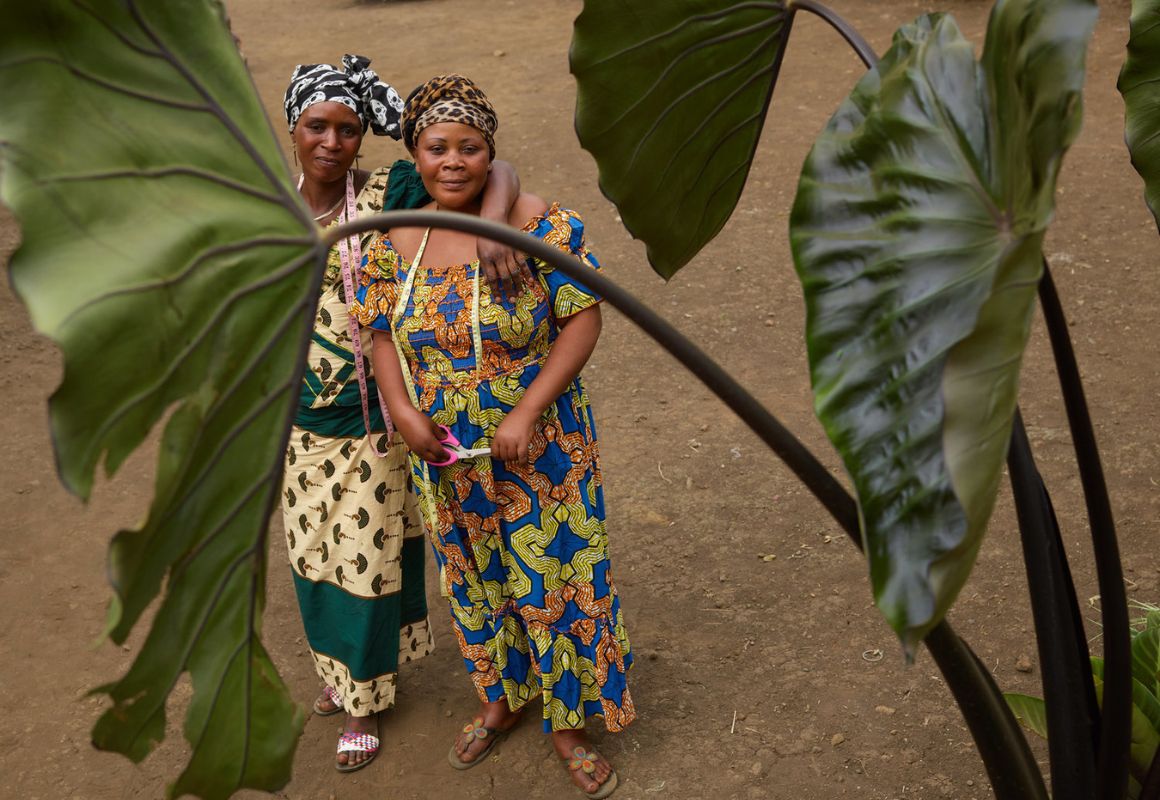Sourcing our Coffee
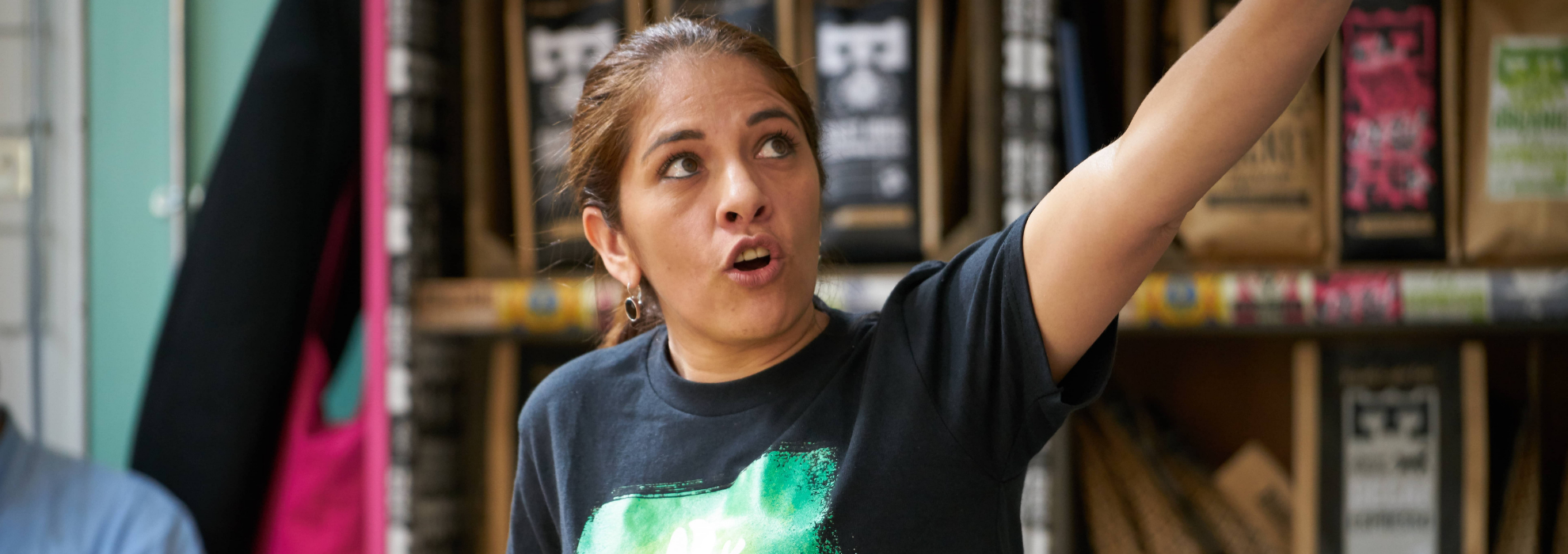
Making coffee better for growers
Making coffee better is at the heart of everything we do at Extract Coffee Roasters, and that means making coffee better for the farmers that produce it.
We believe that quality coffee means supporting coffee farmers by buying coffee from the same farmer year after year so that they can forward-plan for next year’s crop.
WHERE DOES OUR COFFEE COME FROM?
You might have heard of the two most common types of coffee. Robusta and Arabica. All of the coffee we buy is Arabica coffee. It has a slightly lower caffeine content than Robusta and is therefore known for a lighter, smoother flavour with less bitterness.
Arabica coffee is grown in the coffee belt, between the Tropics of Cancer and Capricorn. Most of the coffee we buy is from South and Central America, East Africa and Asia.
Caffeine is a natural pesticide in the coffee plant. Arabica grows best in high altitudes where there are fewer pests (this is why it has less caffeine than Robusta). Many of the farms we work with are in remote, hard-to-reach places high in the mountains or volcanoes.
Some of the coffees we buy are grown by smallholders working in a cooperative. Others are from larger farms which support entire communities.
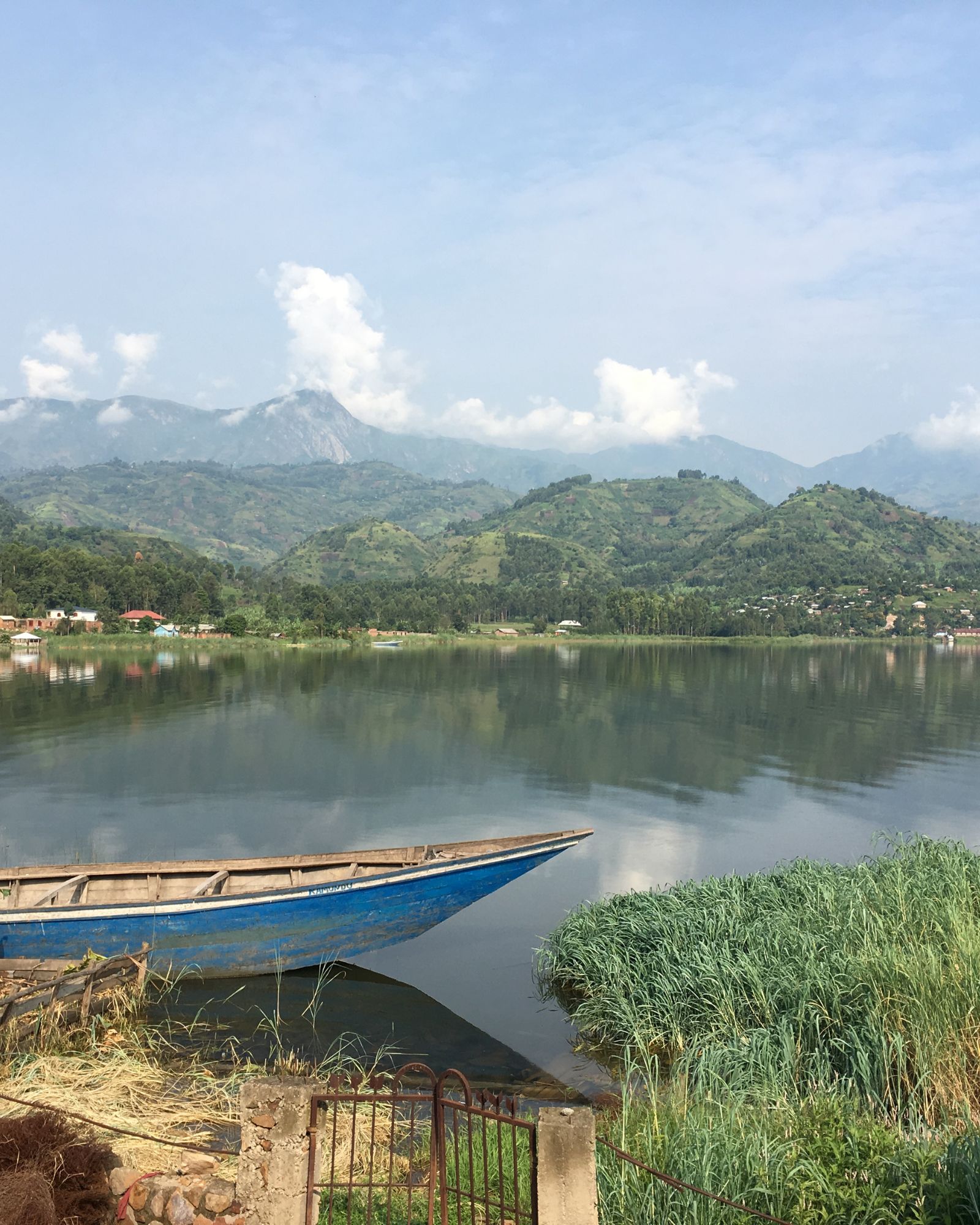
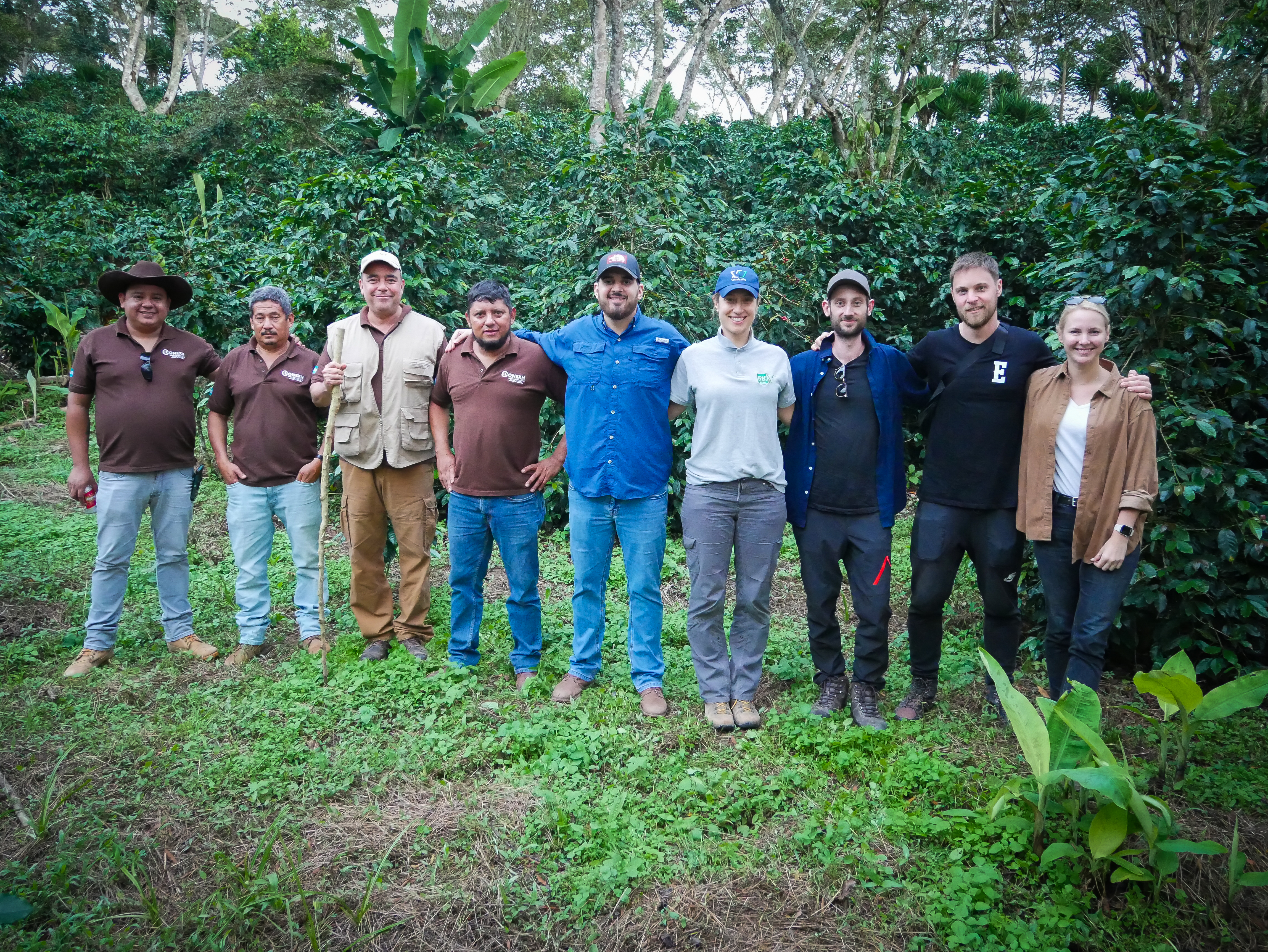
Our entire coffee supply chain on a recent trip to Honduras.

UNDERSTANDING THE COFFEE SUPPLY CHAIN
The coffee supply chain is complex with lots of different parts.
- Growers - grow and pick the coffee.
- Cooperatives - a collection of small growers. (May also own processing and export facilities.)
- Washing Stations - where coffee is washed, graded and dried.
- Dry Mill - where the parchment and husks are removed and the coffee is sorted and graded.
- Exporter - prepares the coffee for export and markets the coffee to prospective buyers.
- Shipping - transporting the coffee from the country of origin, to the consuming country.
- Importer - handles the process of importing the coffee into the country of consumption and selling this to the roaster.
- Roaster - buy green coffee beans from the importer and roasts these to sell to cafes, restaurants and consumers at home.
The best quality coffee is grown in places where living and working conditions can be hard. Growers are disproportionately impacted by the effects of climate change, extreme weather events and political instability.
So, taking a responsible and respectful approach to coffee sourcing is important. We choose the growers and importers we work with carefully.
Our partners are selected for the quality of the coffee they produce, for their dedication to environmental conservation, and for how they look after farm workers.
Many of the farms we work with choose to dedicate part of their land to preserving natural forest. Others have initiatives in place providing education, healthcare and infrastructure to local communities.

